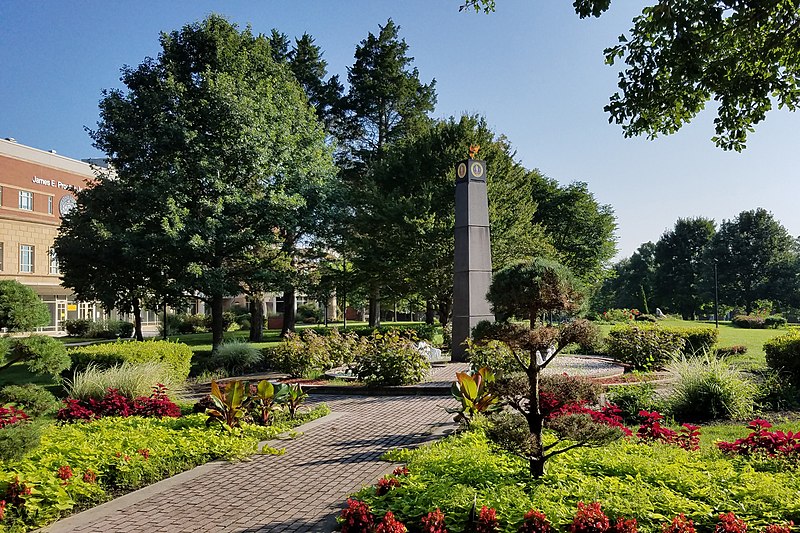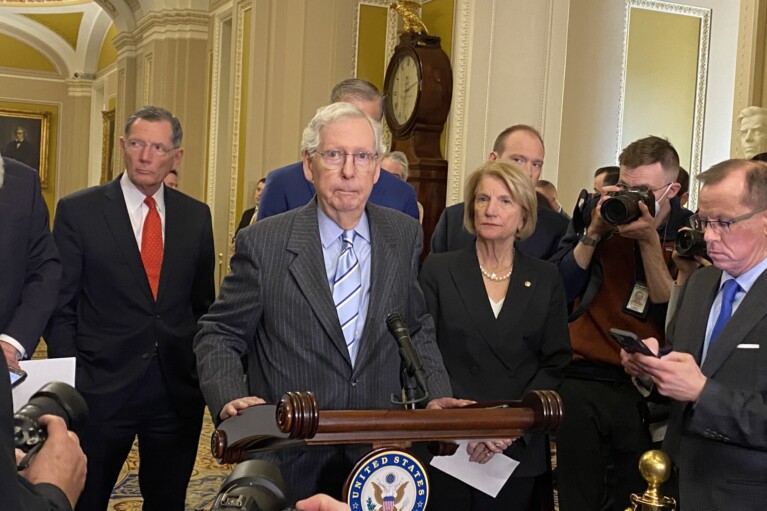
Hours before the Southern Poverty Law Center held a virtual panel Tuesday about recent bomb threats made to dozens of historically Black colleges, yet another bomb threat was reported — this one to Spelman College, a historically Black institution in Georgia.
“This was a racist attack that aims to not only disrupt the start of Black History Month, but the perpetrators, we believe, wanted to send a message that even learning while Black is not safe from hate,” said Lecia Brooks, the chief of staff and culture for the SPLC.
“They clearly underestimated the strength of our treasured centers of learning, whose very existence is rooted in resilience.”
Leaders from five historically Black colleges and universities and an official with the U.S. Department of Education discussed how coordination between the institutions and the federal government could help protect students, faculty and the communities around those campuses. Nearly 20 HBCUs received bomb threats in the past weeks, with more than a dozen on Feb. 1, the first day of Black History Month.
“Throughout history, we have seen threats aimed at Black men and women in their homes, at Black students in our classrooms, and at Black children on the playground,” U.S. Rep. Lucy McBath, (D-Ga.), said in a statement.
McBath, who graduated from an HBCU, Virginia State University, said that “these hateful threats will not oppress our drive towards excellence.”
The FBI is currently investigating the bomb threats made to HBCU institutions as hate crimes.
Michelle Asha Cooper, the acting assistant secretary for postsecondary education at the U.S. Department of Education, said that the department was working with the Justice Department, FBI and U.S. Department of Homeland Security to investigate the threats.
“These threats are reminiscent of the civil rights era,” she said. “Bomb threats against Black people is an unfortunate part of America’s history.”
Multiple media outlets have reported that the FBI has identified six juveniles of interest in the calls made to HBCUs.
Zachary Faison Jr., the president of Edward Waters University in Florida, said that he was concerned to learn that the threats could stem from young people, and added that he’s worried that children are not properly being taught about the history of racism in America.
“When I thought about young people, I’m thinking about people that don’t really understand or appreciate the historicity and the pains to African Americans in this country, particularly historically Black colleges and universities,” he said.
Brooks agreed and said that “we are seeing this more and more from our elected officials at the highest level, and those responses from our elected officials are having an impact on young people.”
Republicans at the state and congressional level have introduced or passed legislation to ban the teachings of critical race theory, an academic subject in higher education that has been around since the 1970s that looks at how race and law intersect. It’s not a subject taught in public schools.
Felecia Nave, the president of Alcorn State University in Mississippi, said that following the threats, her priority was students’ well-being.
“I’m extremely saddened for our students who continue to be traumatized, in what is truly unprecedented times,” she said.
Nave said that when she talked to students, she also talked to them about solutions and how they can help their community.
“They are disappointed, they are traumatized,” she said. “They’re resilient, and they are resolved to continue to move forward and to make it known that we won’t be threatened.”
She said they talked about voting rights and how it’s a constant struggle to fight for the right to vote and how important it is to educate people in their community about when certain legislation comes up, such as critical race theory.
“They’re being that next generation of civil rights leaders that our community is gonna need,” she said.
Walter Kimbrough, president of Dillard University in Louisiana, said that while his university has not yet received a bomb threat, the institution is no stranger to racist threats.
“I think that this has been a wake-up call for us,” he said. “Let’s lean into the history and deal with those issues and then say, how do we learn from that and apply it in this new context?”
Lawmakers urge swift investigation
Maryland’s U.S. Senators Chris Van Hollen and Benjamin L. Cardin (both D) sent a letter Tuesday urging the Department of Justice and Federal Bureau of Investigation urging a swift investigation of the bomb threats.
“We must act with urgency to address these injustices and ensure the safety of our HBCU communities. We understand that the FBI’s investigation into these attacks is underway and urge the FBI to ensure its investigation is well-resourced, thorough, swift, and in coordination with local law enforcement. Furthermore, we request that the Department of Justice act quickly upon the FBI’s investigation findings to hold the perpetrators accountable,” the lawmakers wrote in their letter to Attorney General Merrick Garland and FBI Director Chris Wray.
The lawmakers note that HBCUs in Maryland and in nearby Washington, D.C. – Bowie State University, Coppin State University, Morgan State University, Howard University, and the University of the District of Columbia – were among those targeted as Black History Month had just begun, disrupting and inciting fear on their campuses and in their communities.
“These threats forced campus lockdowns and class cancelations and created an environment of fear for students, faculty, staff, their families, and their communities. Moreover, Tuesday’s threats came on the first day of Black History Month, a time to honor Black Americans across this nation and to commemorate their achievements,” the senators wrote. “During the Jim Crow era, white supremacists sought to disrupt civil rights activities and harm and intimidate Black communities through bombings, threats, and other acts of terror and violence against Black schools, churches, and neighborhoods. The recent spate of bomb threats against our Historically Black Colleges and Universities brings this painful history into sharp focus.”
Other institutions that received bomb threats include:
- Howard University and the University of the District of Columbia in Washington, D.C.
- Bethune-Cookman University and Edward Waters University in Florida
- Albany State University, Fort Valley State University and Spelman College in Georgia
- Southern University and A&M College and Xavier University in Louisiana
- Philander Smith College in Arkansas
- Delaware State University in Delaware
- Kentucky State University in Kentucky
- Alcorn State University, Jackson State University, Mississippi Valley State University and Tougaloo College in Mississippi
Danielle E. Gaines contributed to this report.




 Creative Commons Attribution
Creative Commons Attribution